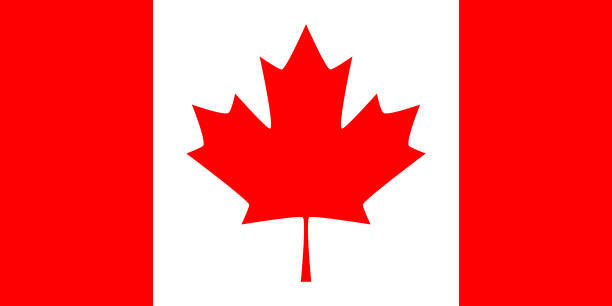Study in Canada
Study In Canada as an International Student
The moment of your life when preparing for the future may be terrifying and thrilling. There are so many choices and directions to take. Canada stands out among the many options available to students. Canada is now the greatest country in the world for quality of life and consistently ranks among the most developed nations in the world. Studying in Canada will give you access to some of the best professors and educators in the world, giving you an internationally renowned education.
We at Maple provide insights to students into the benefits and challenges of studying abroad in Canada, which will be helpful for students, educators, and policymakers. Due to its enormously diversified population, Canada has a vibrant cultural landscape. The four distinct seasons offer many opportunities to discover Canada's breathtaking scenery. The majority of Canada is genuinely an immense wilderness and a thrilling playground for individuals who appreciate being outside. On the west or east coasts, you can go trekking, mountain climbing, skiing, or even visit a beach.
The nation's capital is Ottawa, the fourth-largest city in Canada. In terms of population, economics, cultural relevance, and education, Toronto, and Montreal rank first and second in Canada. Vancouver's third-largest city is a hub for international trade and the central western entryway to Canada's developing interior. Alberta, British Columbia, Manitoba, New Brunswick, Newfoundland and Labrador, Nova Scotia, Ontario, Prince Edward Island, Colombia, Quebec, and Saskatchewan are Canada's provinces. Yukon, Nunavut, and the Northwest Territories represent the three territories. Amongst the many possibilities available, Canada may be one of the best for international students in different ways like its cost to study in Canada from Nepal. Since it offers a top-notch education that is respected worldwide, inexpensive tuition, options for post-study employment and immigration, a hospitable culture, and its Canadians are kind and frank people.
Canadian Colleges and Universities to Consider
It is a country with an exceptional standard of living and where there are numerous chances to gain experience in study. The current educational policy of the Canadian Ministry of Education places a strong emphasis on increasing the number of overseas students. Many of Canada's universities are listed in recognized international rankings.
Diplomas from Canadian colleges and universities are accepted worldwide. For international students, living and tuition costs in Canada are often lower than in other countries like the US and the UK. Canada is well known for having some of the lowest university tuition costs among English-speaking nations. You can find something perfect for you among the wide range of educational options, no matter your budget. During Covid-19, all the Canadian universities went online. According to QS World University's rankings, 3 Canadian cities—Toronto, Montreal, and Vancouver—are in the top fifty cities for students. Many of the students prefer to study in Canada Toronto and other cities are also popular too.
Top 10 universities in Canada according to QS World Ranking (2022-2023)
|
GlobalRank |
Universities |
|
31 |
McGill University |
|
34 |
University of Toronto |
|
47 |
University of British Columbia |
|
110 |
University of Alberta |
|
116 |
Université de Montréal |
|
152 |
McMaster University |
|
154 |
University of Waterloo |
|
172 |
Western University |
|
237 |
University of Ottawa |
|
242 |
University of Calgary |
Canada, welcomes almost 500,000 international students, is renowned for providing top-notch education at reasonable tuition costs with degrees that are recognized throughout the world. When you factor in the high standard of living, the abundance of job and immigration options following graduation, and Canada comes out as a top choice for any international students looking to study abroad. Choosing Canada as their study destinations is famous among the students cause of it's cost to study in canada from nepal, easy visa process, study in canada after 12th, and also easily PR in Canada as international student.
Canada is now the greatest country in the world for quality of life [1] and consistently ranks among the finest nations in the world. Studying in Canada will give you access to some of the best professors and educators in the entire world, giving you an education that is renowned across the globe.
The following are the top eight reasons why choosing Canada can be a wise move:
1. Academic Excellence
The high caliber of education is among the main factors influencing students' decision to study in Canada and graduate. A student's degree from a Canadian university serves as a symbol of distinction and reliability.
2. Numerous prospects for research
The high emphasis on research and development in Canadian education is one of the main factors that sets it apart from other systems. There is no better country than Canada if you are a researcher or researcher. Research in medical, telecommunication, agriculture, environmental science, and technology is generously supported by the Canadian government. Canada is suitable for professional researchers as well.
3. Inexpensive and within your budget
When compared to institutions in the US and the UK, Canada's tuition is less expensive. And when you take the return on investment into account, it is a very sensible choice for international students. You can also apply for various Canadian scholarships to lower your tuition costs.
4. Diversity of cultures
People in Canada are amiable and inviting, hailing from various ethnic groups with unique customs and lifestyles. Canada's diversified climate fosters friendship and peaceful coexistence like no other nation. There are a lot of international students here, like India, Nepal, China, Indonesia, Philippines, etc., who are learning, working, and living. Festivals and rituals like the Calgary Stampede NHL Hockey Experience, the Montreal International Jazz Festival, Montreal's Just for Laughs comedy festival, etc.
5. Peaceful and secure environment
One of the top reasons why people choose to study in Canada is because it is a safe and secure place to live. The country has a low crime rate and is home to some of the world's best universities. One of the safest countries in the world has long been Canada.
The Global Peace Index* has ranked Canada as the 12th most peaceful nation in the world as of 2022. You will have the same rights as any other Canadian as an international student.
6. Get paid to study
Canada offers its international students the chance to work up to 20 hours per week during their semesters and full-time during the summer and winter breaks, thanks to its unique legislation. You would not need a separate work permit to work on campus or as an intern at any business because your study permit is sufficient to support your search for a part-time job.
7. An active and vibrant campus life
All Canadian campuses can anticipate ongoing events, festivals, and other activities. Indeed, this brings life and happiness to the classroom for all students, facilitates networking, and helps you meet new people while preventing homesickness.
8. Possibilities for immigration
The Post-Graduation Work Permit Program (PWPP) in Canada enables students to remain and find employment for up to three years following graduation. You may work abroad for a while and then seek permanent residency/residence or get citizenship.
Featured Programs
While Canada offers the entire range of programs at all levels, these are five top industries that have not only top-rated courses but also ample job opportunities:
- Hospitality industry
- Health Science
- Information Technology
- Engineering
- Business Management
Study in Canada fees:
Tuition fee in Canada is cheaper when compared to many other countries. Some average Costs incurred for studying:
- Diploma Programs CAD $10,000 to $15,000 per year
- Undergraduate program CAD $12,000 to $20,000 per year
- Master’s degree CAD $14,000 to $25,000 per year
- Doctoral degree CAD $7,000 to $15,000 per year
- MBA CAD $35, 000 to $42,000 per year average
Financial Aid and Scholarships
There are a range of scholarships and financial aid options available to students wishing to study in Canada. The following are some of the most common:
- Scholarships offered by the Canadian government
- Scholarships offered by universities and colleges in Canada
- Scholarships offered by private organizations
- Loans and bursaries offered by the Canadian government
The best way to find out about financial aid and scholarship options is to contact the universities or colleges you are interested in attending. There are a variety of financial aid and scholarship options available to students who want to study in Canada. The government of Canada offers a variety of scholarships and bursaries to international students, and many Canadian universities also offer scholarships and financial aid to international students. Additionally, there are a number of private scholarships available to students who want to study in Canada.
Government of Canada Scholarships and Bursaries
The government of Canada offers several scholarships and bursaries to international students who want to study in Canada. The following scholarships and bursaries are available to international students:
- The Canadian Merit Scholarship Program: This program offers scholarships to international students who have a high academic achievement and demonstrate strong leadership skills.
- The Canada Millennium Scholarship Program: This program offers scholarships to students who are from low-income families or have disabilities.
- The Canada Student Grant Program: This program offers grants to students who have a low income or are from a remote area.
- The Canada Study Grant Program: This program offers grants to students who are enrolled in a full-time degree program at a Canadian university or college.
- The Canada Education Savings Grant Program: This program offers grants to In Canadian Universities and Colleges, various merit-based and application-based scholarships and bursaries are offered.
Work Permit (Part time Jobs)
All international students studying in Canada can work up to 20 hours per week during the academic year and full-time over the summer and winter breaks. After completing the Post-Graduation Work Permit Program (PWPP), which offers a fantastic opportunity to advance your professional skills while residing in Canada, international students from Canadian higher education institutions are eligible to work up to three years in Canada. Furthermore, with more experience and additional study visas, your stay and visa date modification are possible.
All international students studying in Canada can work up to 20 hours per week during the academic year and full-time over the summer and winter breaks. After completing the Post-Graduation Work Permit Program (PWPP), which offers a fantastic opportunity to advance your professional skills while residing in Canada, international students from Canadian higher education institutions are eligible to work up to three years in Canada. International Students must be aware, if you are thinking of using date modified visas or any documents.
Academic Requirements
If you are applying for a student visa to Canada, you may have been thinking about requirements to study in Canada from Nepal. You can get ready for the procedure by looking at the prerequisites. Like this, Canadian Universities have established a unique application process that varies from university to university.
Most colleges and universities, as well as Canadian immigration, need you to have an overall IELTS score of 6.5 or higher, with a minimum band score of 6.0 or the equivalent on another English proficiency test. Whereas the Canadian High Commission and Canadian educational institutions prefer the ILETS test, and you need to have a minimum GPA of 55%. You must demonstrate sufficient financial stability to pay for the costs of living and attending school in Canada. A gap should not be an issue if you have legitimate professional obligations in your study area.
Study in Canada as an international student
IELTS Requirements
To study in Canada, you will need to prove you have the language skills to be successful in your program. You will need to provide results from an English or French language test. The most common test used to demonstrate language proficiency is the IELTS.
The IELTS test is offered in over 150 locations worldwide and is accepted by over 9,000 institutions in over 135 countries. The test measures your ability to communicate in English in academic contexts. It has four sections: listening, reading, writing, and speaking.
You will need to achieve a score of 6.5 or higher on the IELTS test to be eligible to study in Canada. Few universities, like the University of Toronto and the University of Waterloo, need an IELTS score of 7.0. For Masters and PG Diploma/ Grad Certificate: Minimum 6.5 in IELTS with no band less than 6 (PTE above 62, TOEFL 88 with no band less than 20).
IELTS minimum of 6.5 for bachelor's degrees, with no band lower than six. (TOEFL 88 each band no less than 20) PTE (60-63) no band less than 55
For diplomas, advanced diplomas, associate degrees, and certificates, the minimum overall IELTS score is six, with no band lower than six, and the preferred score is 6.5.

Discover Your Future in Canada: Join Nepal's best Educational Consulting Center
No thanks!




